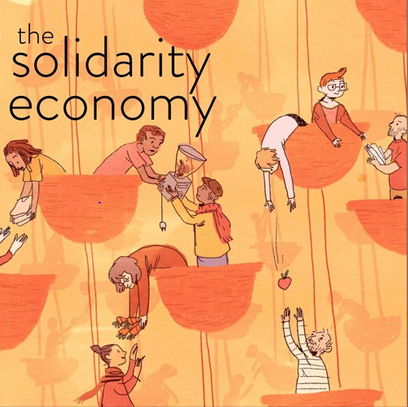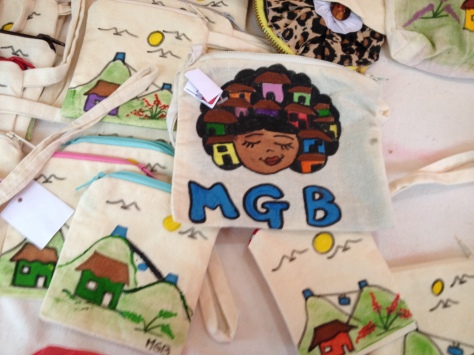Please visit our new website new website, ussen.org
Upstream podcast on solidarity economy

In this episode we explore a phenomenon that has existed throughout centuries both within and alongside Capitalism. Wherever relationships have been based on reciprocity, sustainability, and democratic governance you’ll find the Solidarity Economy. We learn of it’s origin and about how it is strengthened by countermovements and during times of crisis. We follow its presence throughout the history of a particular marginalized community in the U.S., celebrating the courage of African American cooperative thought and practice. We then paint a picture of a modern solidarity response to economic austerity. And finally, we dream about it’s potential in the face of ecological peril and plan for what it will take to grow the Solidarity Economy to serve as a movement of movements.
Featuring:
Michael Ventura – Co-author with James Hillman of We’ve Had a Hundred Years of Psychotherapy – And the World’s Getting Worse, columnist of Letters at 3AM with the Austin Chronicle
Caroline Woolard – Artist & organizer whose work explores intersections between art and the solidarity economy
Michael Lewis – Soildarity economy researcher; Co-author of The Resilience Imperative
Pat Conaty – Research associate Cooperatives UK, Co-author of The Resilience Imperative
Jessica Gordon Nembard – Professor of Community Justice and Social Economic Development, author of Collective Courage: A history of African-American Cooperative Economic Thought & Practice
Biba Schoenmaker – Co-Founder of Broodfonds Makers
Stuart Field – Founder of Breadfunds UK
Jos Veldhuizen – Member of Broodfunds, Amsterdam
New Zine Highlights the Solidarity Economy in St. Louis
It’s hard to convey what the sharing movement is about without describing how it looks in practice. No matter how well you lay out its basic principles, you need concrete examples and visual imagery to help people reach that aha moment.
A new publication called “Humans of Solidarity Economy” gets this right. It’s a zine of photographs, interviews, and descriptions of the people behind Solidarity Economy St. Louis, highlighting their work in alternative currencies, food justice, economic empowerment, shared land and housing, and more. It’s made in partnership between the Cowry Collective, Solidarity Economy St. Louis, and Mutual Aid Network.

What is the solidarity economy? The Solidarity Economy St. Louis describes it as an economy based on meeting “human needs through economic activities — like the production and exchange of goods and services — that reinforce the values of social justice, ecological sustainability, cooperation, mutualism, democracy, and innovation.” The group says that “it is dynamic and diverse, including both monetized and non-monetized practices and means of exchange.” (…More)
Solidarity Economy Part 3: Expanding Citizenship in Brazilian Favelas

This is the third and final article in our three-part series on solidarity economy in Brazil.
Solidarity economy enterprises move beyond the “any job is a good job” logic sometimes found in efforts to address labor market exclusion. Instead, these more holistically supportive workspaces can help solidarity economy entrepreneurs move beyond “consumer citizenship” into a deeper participatory citizenship, becoming protagonists.
But what does citizenship mean in the context of untrustworthy political institutions and isolation from quality education and basic public services? While some scholars have referred to the condition of people living in peripheral urban areas of 21st century cities as “subcitizenship,” Portuguese sociologist Boaventura de Sousa Santos argues that citizenship cannot be obtained via the concession of rights for people living in such conditions, but instead obtaining citizenship demands the transformation of global processes of socialization and models of development. In effect, rights may not be sitting there waiting to be accessed. Even with ascension in socio-economic status, for instance, they may instead require collective action.
Anthropologist James Holston writes of what he sees as a uniquely Brazilian “inclusively inegalitarian citizenship.” This combines two conflicting components: formal membership and principles of incorporation into nation-state (largely established in the 1988 Constitution as the country transitioned to democracy), together with “substantive distribution of rights, meanings, institutions, practices that membership entails to those deemed citizens.” Given that these two factors are so often at odds, Holston investigates what he calls “insurgent citizenship,” a form of confronting this gap in formal and substantive rights in an insurgent way in the peripheries, through the auto-construction of the periphery, through protest and petition, and through identities that challenge exclusionary norms of society and citizenship. (…More)
Solidarity Economy Part II: Female Protagonists

This is the second article of our three-part series on solidarity economy in Brazil.
With a broader understanding of the solidarity economy in Brazil in mind, testimonials from participating entrepreneurs themselves show the real advantages of this kind of work, from circumventing market exclusion to creating new kinds of spaces where women are reimagining the divide between domestic and productive spheres.
There are upwards of 300 solidarity economic enterprises, or empreendimentos econômicos solidários (EESs), participating in the 14 fairs that make up Circuito Rio EcoSol, Rio’s solidarity economy circuit. Many of the participants are from favelas, and many EESs have joined together in networks.
The Mulheres Guerreiras da Babilônia (Warrior Women of Babilônia), for example, form an association of ten women who make bags and accessories with imagery from their community, including imagery representing strong Afro-Brazilian women. They have joined together with other EESs to form a network of solidarity economy entrepreneurs from Pavão-Pavãozinho, Mangueira, Babilônia, and Santa Teresa. (Read more)
Women in resistance, building alternatives for a better World

28 October 2016
“At the WMW, we work to empower women and increase their economic … We believe in the redistribution of wealth and the solidarity economy.“
Declaration of the World March of Women 10th International Meeting in Maputo, Mozambique from October 11 to 15, 2016
We, the women of the World March, fight the hetero-patriarchy, capitalism, colonialism and all forms of inequality and discrimination. We demand our right to take back control of our bodies, our land and our territories.
In this chaotic world, we believe that another world is possible. Together, we work to build our feminist alternatives that reinforce our movement. (read more)
Can the ‘new economy’ and labor movements come together again?
Eric Dirnbach August 31, 2016, Waging Non-violence

- Advocates for worker cooperatives celebrate outside City Hall in Oakland after the city council passed a resolution supporting the development of worker co-ops on Sept. 8, 2015 (Sustainable Economies Law Center)
Activists in Oakland have been campaigning for new city policies that would assist worker cooperative development. After successfully winning passage of a city resolution in support of cooperatives last fall, they are now pushing for a new law, the Oakland Worker Cooperative Incentives for Growth Ordinance. Supporters will speak in support at the upcoming hearing at City Hall on September 27, and the ordinance is likely to pass in October. It would grant a variety of benefits for registered worker cooperatives including procurement preferences, development funding, tax incentives, streamlined permitting and promotion of business conversion to cooperatives. The Sustainable Economies Law Center, one of the key promoters of the ordinance, says that it will be the first of its kind to offer this level of assistance for cooperatives.
This campaign is one part of a vibrant, growing movement advancing community-oriented, alternative ways of economic development. This includes cooperatives and credit unions, community land trusts, municipal participatory budgeting, local renewable energy and various community organizing initiatives to build local power, all within a grassroots, intersectional and anti-oppression political framework. This kind of work is often referred to as the “new economy” or “solidarity economy.” (more…)
Pluralist Commonwealth – Gar Aoperovitz
Film Review: Solidarity Economics in Italy
Everywhere You Look
In their 2012 film “Shift Change”, filmmakers Melissa Young and Mark Dworkin introduced viewers to workers who make the case for democratic control and ownership of production. The film highlighted successful examples like the Mondragon Corporation in the Basque Country in Spain and the Evergreen Cooperatives in Cleveland, Ohio, as well as smaller projects (including coffee shops and bakeries).
In their new film, “WEconomics,” Young and Dworkin show viewers what cooperativism looks like not just in a single workplace, but on a social level—an ecosystem of many co-ops. This time the successful model is Emilia-Romagna, a province in Northern Italy that has “one of the highest concentrations of cooperatives in the world.”
As in “Shift Change,” the story is told—very effectively—by the people interviewed, a mix of co-op leaders and one academic. But this time, instead of watching workers assemble washing machines on a factory floor, we’re watching people stroll through the scenic streets of Bologna, sit in piazzas sipping fair-trade espresso, shop for shoes made locally with all-natural materials and no chemicals, work with children and the elderly, and refill their bottles with the local Sangiovese wine. (more)
Vanuatu: Another kind of wealth
Published on Mar 21, 2016
In the language of modern economics, the small island nation of Vanuatu in the South Pacific is labeled one of the world’s ‘least developed countries’. At the same time, Vanuatu has ranked number one on the pioneering Happy Planet Index. This incongruity points to major issues with today’s standard measures of human progress, and has many policymakers rethinking notions of wealth and how they shape development policy.
